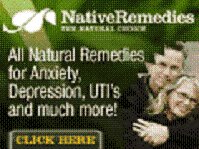
|
|||||||
Possible Ginseng Side Effects, Caution and ContraindicationsGinseng is, overall, safe. Yet, we need to take note of possible ginseng side effects, before and during the use of the herb. This applies to the use of any herb. These potential side effects, precautions and contraindications have been collated from various sources. Some of them sound very serious.
Share YOUR Knowledge and Experiences
or Read Others' Contributions Click here for more pages and articles on Ginseng. A note about the Possible Ginseng Side Effects, Caution and ContraindicationsHerbs are God and nature's gifts to us. While the use of herbs and herb remedies has brought excellent results for many people, do note that their health benefits may be limited when they are used in isolation. However, when combined with some basic dietary and lifestyle good health habits, such as a full body detox and a proper understanding and application of nutrition, the impact on one's health will be greatly magnified. In natural health and healing, we believe that the body has the ability to heal itself of any disease, even supposedly incurable diseases. We also believe in holistic health and healing, as we realize that different parts of the human body are highly interlinked, often beyond Mans understanding. It is thus a good idea to apply these fundamental health steps no matter how remote or unrelated a health condition may seem. However, personally, I have no qualms about using ginseng at all. Ginseng, like almost all healthful and beneficial herbs, is far, far, far safer than any pharmaceutical drug on the shelves. These are just precautions, for information. Official Classification of Ginseng The American Herbal Products Association, or AHPA, classifies ginseng as a Class 2d herb, which means that its use is subject to restrictions. Though ginseng is not listed as a medicine, and therefore is not regulated by the Food and Drug Administration or the FDA, it does fall under the category of dietary herbal supplement and is regulated by the AHPA, to ensure that its potential side effects are understood and factored in by users. Potential Ginseng Side Effects Ginseng Abuse Some possible ginseng side effects are described in the following paragraphs. Ginseng abuse is a syndrome caused by taking ginseng misguidedly or excessively. As per traditional Chinese medicine, the main purpose of ginseng administration is for longevity and therefore is recommended only to the aging population of over age 60; it is seldom prescribed to younger population. Also, it is to be taken only in winter and discontinued thereafter. Ginseng abuse syndrome consists of symptoms like restlessness, nausea, abdominal pain, heart palpitations, blood pressure, chest heaviness, dizziness, insomnia, vomiting, abdominal pain, bloating, digestive problems, edema and skin rash. Should the aforementioned symptoms manifest, immediate discontinuation of ginseng is recommended, and the patient should contact a licensed practitioner of traditional Chinese medicine, to ascertain if the symptoms are due to ginseng abuse. Other Potential Side Effects of Ginseng Consumption The American medical journals clearly chronicle case studies involving severe side effects from chronic ginseng users. One of the cases speaks of a patient suffering from Stevens-Johnson syndrome in a Chinese student; a patient with cerebral arthritis following a large dose of ginseng extract; a patient with metrorrhagia following two months of steady use of ginseng; and a patient with hemorrhagic bleeding from the vagina following continuous use of ginseng douches. Another study conducted in the United States between the years 1999 and 2001 surfaced reports of contaminated ginseng. Hence, even though the health benefits of ginseng are indisputable, caution should be exercised regarding any possible ginseng side effects and the quality and safety of ginseng products. Possible Drug Interactions of Ginseng Some ginseng side effects may surface if the herb is taken together with certain medical drugs. For example, it has been found that overstimulation is caused by the usage of ginseng, due to its interaction with caffeine that the patient might be having, resulting in acute insomnia. Also, in patients with congestive heart failure, ginseng is known to react with digoxin, and exacerbate its effects. Ginseng is also known to interact with phenelzine, which is an antidepressant, causing a range of symptoms from manic episodes to headaches. In addition, ginseng is likely to interact with Coumadin, an anticoagulation drug. Precautions and Contraindications for Ginseng To avoid any potential undesirable ginseng side effects, some precautions are highly advisable. For patients who are on oral prescription medications to lower blood sugar levels (Type 2 diabetes), it is important to inform their physician before commencing a regimen of ginseng containing products. This is because ginseng can potentially lower blood sugar levels, and this can get exacerbated if the patient continues to take regular prescription medicine for the condition along with ginseng products. Since ginseng can worsen bleeding problems following invasive surgery, it is recommended that it should be discontinued prior to any abdominal or dermatology surgeries. Dental extraction, too, would be risky if a patient is on ginseng products, and hence, to avoid any ginseng side effect of excessive bleeding, ginseng is to be discontinued in this case also. The American Herbal Products Association (AHPA) states that ginseng should not be taken by people with hypertension (high blood pressure) since it is likely that ginseng can have variable effects on blood pressure. Some patients experience hypertension and some experience hypotension. Do note, however, that ginseng has also been used to alleviate and treat hypertension - discretion will have to be exercised and personal choice made by the individual. Ginseng should not be given to children. In addition, pregnant or lactating women should not use ginseng, as it may lower estrogen production. Ginseng should not be used uninterruptedly for long periods of time. It is recommended that ginseng be taken for two months and then stopped for a full month, before it can be resumed again; however the basis for this conclusion is unclear. For more information on ginseng health benefits, refer to the other related articles.
Ginseng Pages | Ginseng Plant - History, Facts and Information on the herb | Ways of Obtaining Ginseng Benefits - Methods of Consumption | Health Benefits of Ginseng - Energy, Stronger Immunity, and More | More about Health Benefits and Effects of Ginseng | Possible Ginseng Side Effects, Caution and Contraindications
Read More: Information on some Herbs | Natural Healing Herbs, Herbals Formulas and Foods - My Favorites | Herbal Remedies for Various Health Conditions and Ailments | Home Page | Site Search
To find an online source of good quality herbs and herbal products at reasonable prices, click here.
Tweet
Return from this page Possible Ginseng Side Effects, Caution and Contraindications to List of Herbs - Information on some Herbs Return from this page Possible Caution, Contraindications and Side Effects of Ginseng to All 4 Natural Health... attaining good health naturally... Home Page
|
Get Quality Natural Health Supplements at Affordable Prices. $5 or $10 discount for new customers [?] Subscribe To This Site
Tweet |
||||||
|
Site Search
|
|||||||
|
This website's content must not be reproduced or republished without express permission. Site Search The information provided on this website is not meant to diagnose, prevent, treat or cure any disease. It is to be taken as suggestions or educational material and not to be considered professional advice. Copyright© 2007-2014 All4NaturalHealth.com. All Rights Reserved. Home | Links & Resources | Privacy Policy | Disclaimer | Subscribe to E-zine | Site Search | Contact Us Return to top |
|||||||









New! Comments
Have your say about what you just read. Leave a comment in the box below.